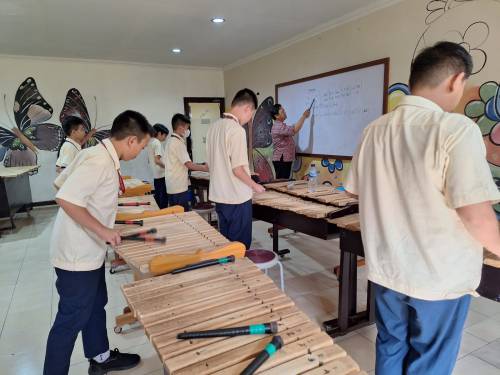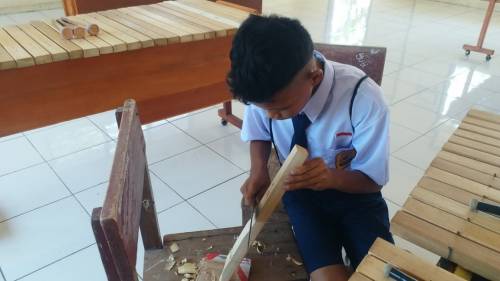Cultural practices and expressions linked to Balafon and Kolintang in Mali, Burkina Faso, Côte d'Ivoire and Indonesia
Mali Burkina Faso Côte d'Ivoire Indonesia
Inscribed in 2024 (19.COM) on the Representative List of the Intangible Cultural Heritage of Humanity

The balafon (in Mali, Burkina Faso and Côte d’Ivoire) and kolintang (in Indonesia) refer to a set of wooden xylophones of different lengths. The Indonesian and West African instruments share similarities in material, shapes, keys, functions, transmission processes and values. They are believed to represent mutual respect and tolerance and promote unity and peaceful and harmonious living. In Indonesia, the kolintang is played during religious ceremonies and rituals and is associated with philosophical, ethical and aesthetic values that establish ties between people of different backgrounds and with nature. The instrument is also viewed as a means of addressing mental and physical health ailments. To its bearers and practitioners, kolintang promotes dialogue and understanding, and its existence is a symbol of respect for cultural diversity. Kolintang musicians, craftspeople, researchers and academics play an important role in transmitting the practice by raising awareness of the importance of kolintang heritage, ensuring the instrument’s sustainability and significance, and transmitting the related knowledge and skills broadly, including to youth, women and girls, and people in vulnerable and marginalized situations. The element is also transmitted through activities across different sectors, including education, culture, research and health. It promotes creativity while supporting diversity, inclusion and social cohesion.

